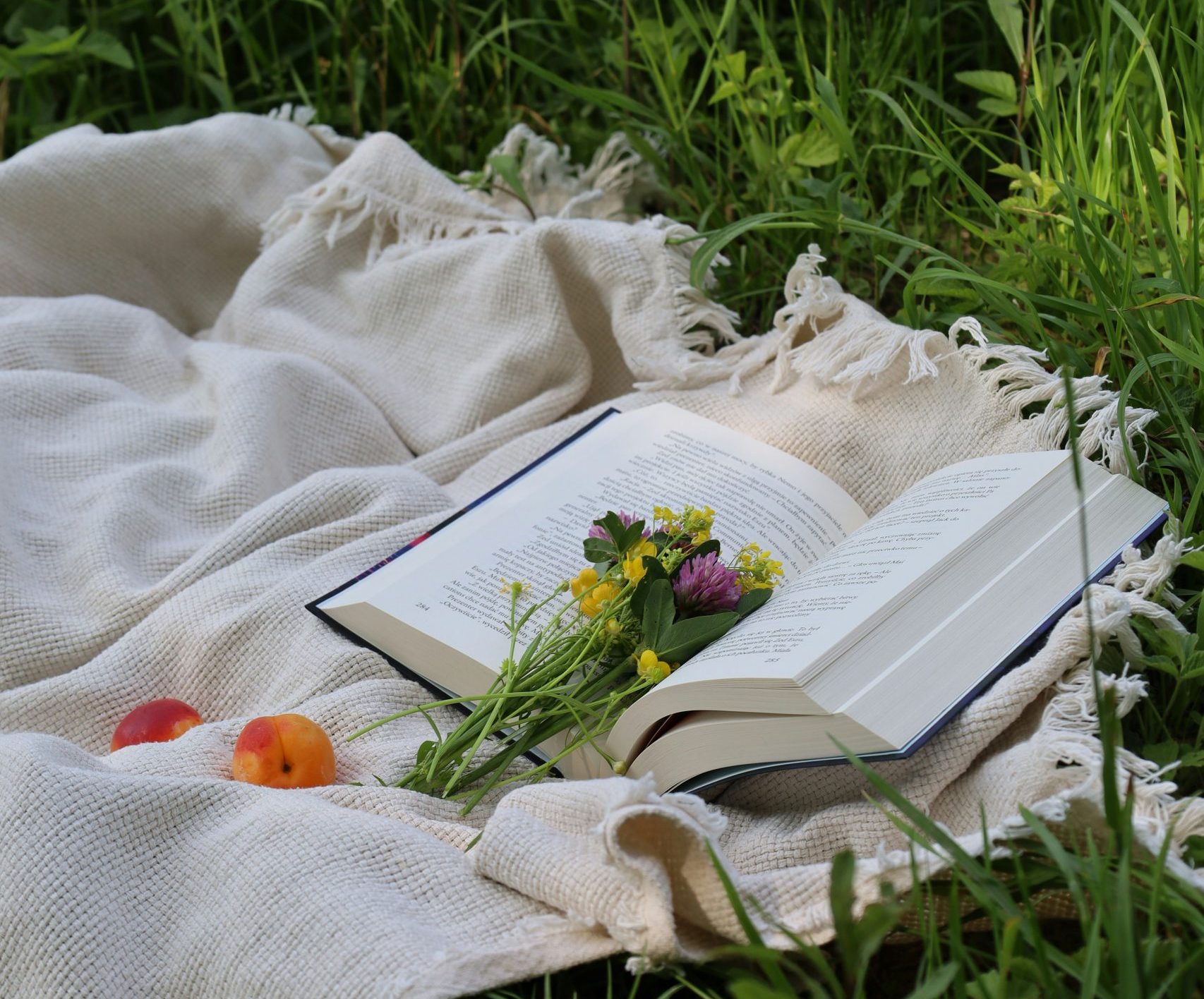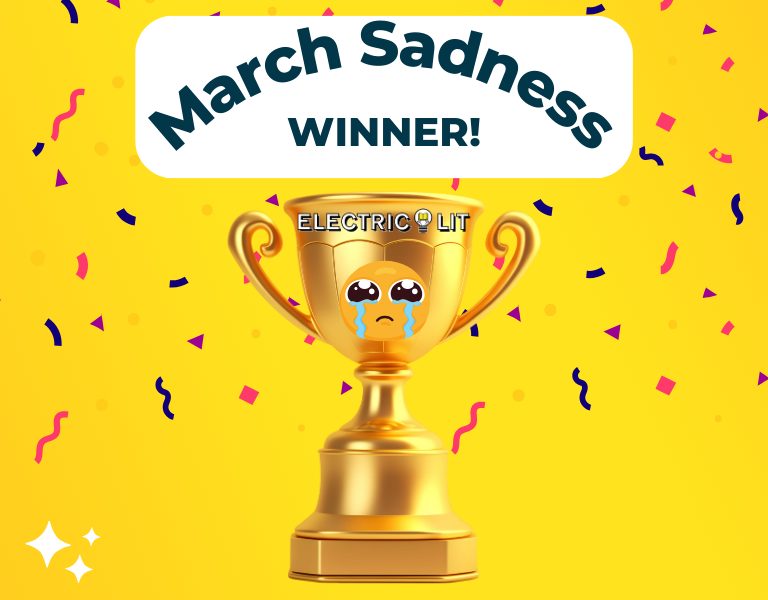Reading Lists
Electric Literature’s 25 Best Novels of 2014
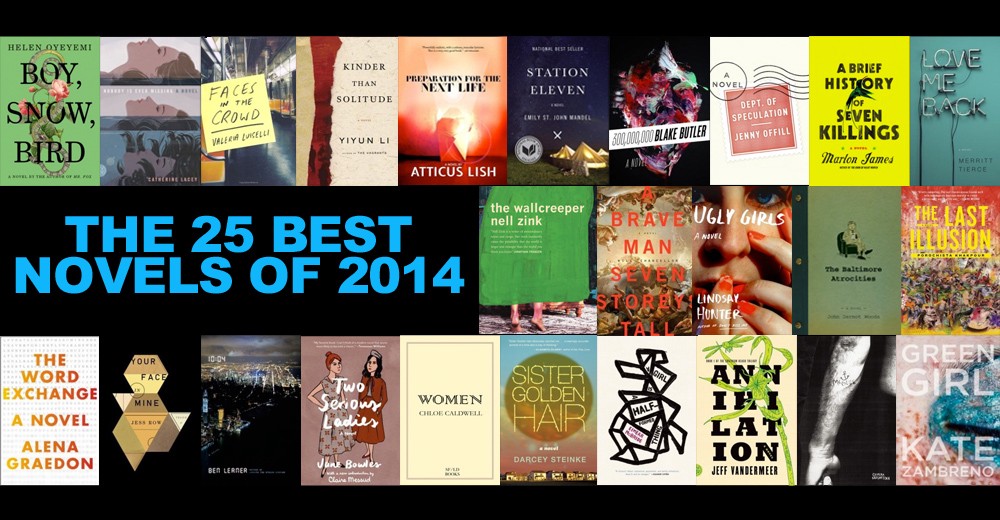
Year-end lists are always subjective and incomplete, but they are especially tricky for books. A dedicated film critic can watch every wide release film and a theater critic can go to most every play, but the book critic is faced with an insurmountable mountain of books each year. The sheer number of books is inspiring as a reader, but it can make “best of” lists laughably subjective when the critic has only read a fraction of the hundreds of thousands of novels published each year.
With that in mind, I decided to crowd source Electric Literature’s year-end lists. First up: novels. (Best story collections, best graphic novels, and more to come.) I asked sixteen Electric Literature contributors and friends to pick their favorite novel published in 2014 to write about, and then asked them to send me a short list of other novels they loved. The novels that got the most mentions have been included with everyone’s top picks. My hope was to have an eclectic list of books that included more than just the obvious names. I think we succeeded here with a list of 25 excellent novels that should include at least a few that you haven’t read yet. (Indeed, the lack of household names like Murakami and Denis Johnson is more evidence that 2014 was the year of the debut.) Keeping in mind that if I’d asked a different set of writers and critics we would have a different list, here are the definite 100% objective best novels of 2014:
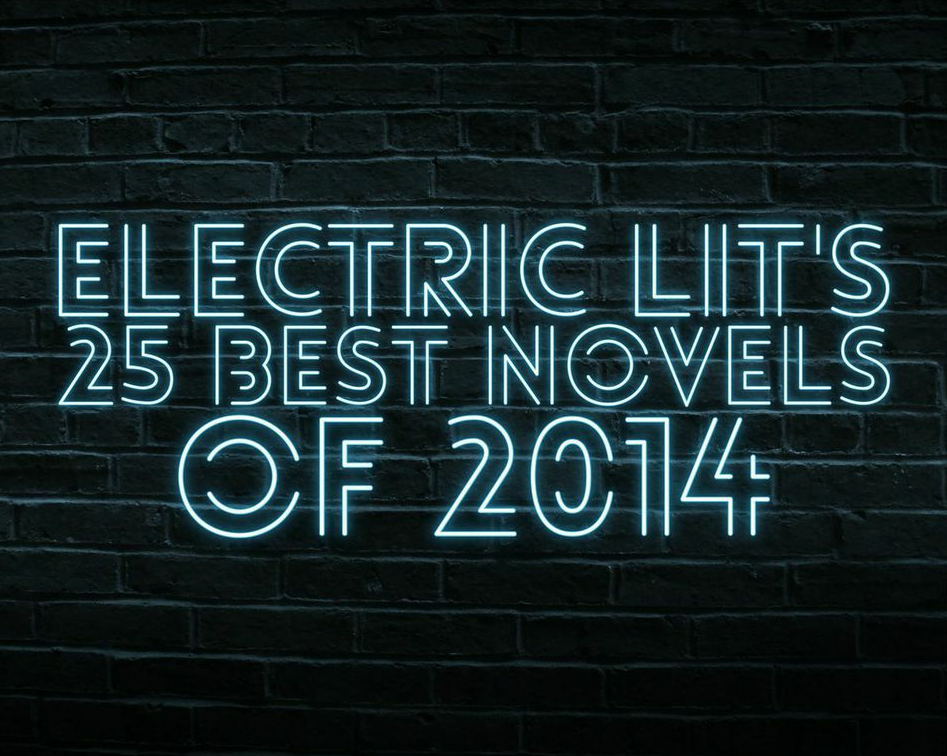
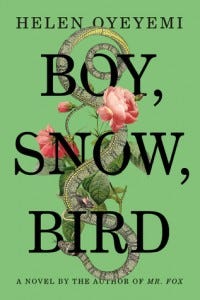
Boy, Snow, Bird by Helen Oyeyemi
The bulk of my 2014 was spent transfixed by Helen Oyeyemi’s fifth novel. Although I could see how the book’s structure could throw some readers off, I’d caution them to keep going to the end because they’ll see that Oyeyemi is undoubtedly one of our great storytellers who is able to weave a complex story into something that you think is magical, and just might actually be.
– Jason Diamond, associate editor of Mensjournal.com and founder of Vol 1 Brooklyn
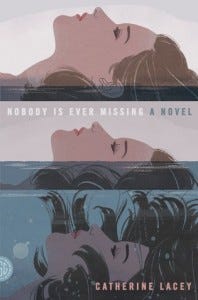
Nobody Is Ever Missing by Catherine Lacey
I’m not a fan of the picaresque. Even the most classic examples of the form often feel tedious and without direction. But Catherine Lacey’s novel defies the conventions of her chosen genre. Her character Elyria is undoubtedly lost, an American in New Zealand who can go home anytime she wants, but doesn’t, and doesn’t know why. And it’s that not knowing that envelops us. We don’t know when or if she’ll go home, and, in a way, we don’t care. Lacey brings Elyria’s experience so close that the reader feels just as rudderless and just as liberated as she does. Just like Elyria, we feel like we want to be set adrift and get lost in an adventure, although, as we continue, we become painfully aware that getting lost cannot be an act of will.
– John Dermot Woods, author of The Baltimore Atrocities and other books
[Read our review of Nobody Is Ever Missing and our interview with Catherine Lacey]

Faces in the Crowd by Valeria Luiselli
This novel is a mysterious wonder, a jigsaw of identity and ghosts and storytelling, and unlike anything else I read this year.
– Laura Van Den Berg, author of The Isle of Youth and other books
[Read our review of Faces in the Crowd and our interview with Valeria Luiselli]
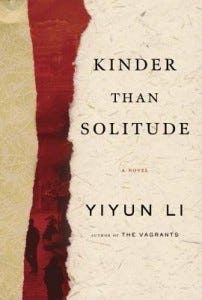
Kinder Than Solitude by Yiyun Li
One of my favorite novels of 2014 was Yiyun Li’s Kinder Than Solitude. I understand she’s a fan of William Trevor, and maybe I like her work for the same reasons I like his: the smooth elegance to the sentences and the willingness to explore intense feelings. It takes courage to do that; she takes risks. Also: one thing her work rarely gets credit for is being funny. There’s a great humor shimmering under so many of her sentences, sometimes wry and sometimes beautifully vicious.
– Jonathan Lee, Associate Editor of A Public Space and author of the forthcoming novel High Dive
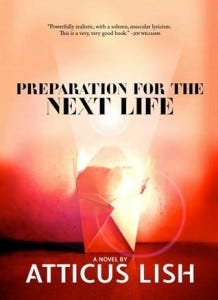
Preparation for the Next Life by Atticus Lish
Here’s the kind of book that shows up, if we’re lucky, every five, maybe ten years. It’s a book that masterfully anchors itself in the literary “novel” form while going leaps and bounds over a dozen of its kin in its authenticity, Lish’s command of the sentence capturing a dizzyingly accurate worldview from street level and up.
– Michael Seidlinger, author of The Face of Any Other and other books
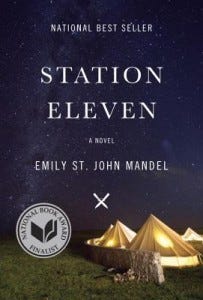
Station Eleven by Emily St. John Mandel
Emily St. John Mandel’s fourth novel is, flat-out, one of the best things I’ve read on the ability of art to endure in a good long while. It’s about the ways that civilization is kept alive in a world devastated by a plague, sure, but it’s also about the way artists live, about the way people live, about flawed relationships and creative pursuits and how the unlikeliest of connections can bring transcendence.
– Tobias Carroll, managing editor of Vol.1 Brooklyn
[Read our review of Station Eleven]
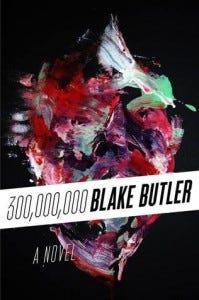
300,000,000 by Blake Butler
This is the book we needed in 2014 — this monstrous year of continued economic, physical, and structural assault, of consumerism and indifference, of power grabs and surveillance and empty, gilded decadence. We needed this book to cut open the corpse of America and expose the full extent of the rot inside. Butler’s book is not an easy read — intellectually or emotionally. But it’s a necessary one, because it’s the rare book that comes along and tells us something essential about who we are — and even rarer that a writer does so in an experimental yet accessible text that works, because it mirrors our own 21 century media-fried brains.
– Amber Sparks, author of May We Shed These Human Bodies
[Read our review of 300,000,000]
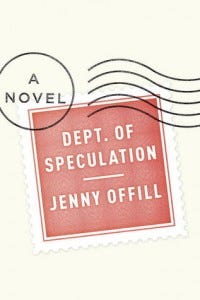
Dept. of Speculation by Jenny Offill
It’s no secret how much I loved Jenny Offill’s Dept. of Speculation. I even wrote about it (among other things) for Electric Literature here. Not sure what I love more about it — that it’s so lovely and unique and, dare I say, experimental a book, or that mainstream contemporary publishing embraced it the way they did. All around a real highpoint in book culture and one of the most assured and impassioned novels of the year.
– Scott Cheshire, author of High as the Horses’ Bridles
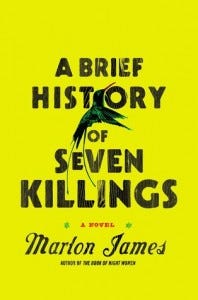
A Brief History of Seven Killings by Marlon James
An absolutely unique and necessary novel of diaspora, bloodshed, reggae, drug addiction and corruption centered loosely around the attempted assassination of Bob Marley in 1976, A Brief History of Seven Killings spans countries, languages and color barriers, taking us from the slums of Kingston to the heyday of crack cocaine in 80’s New York — the story that emerges from the cracks in both cultures is not only a definitive novel of Jamaica but probably the best novel to address recent history (70s through the 90s) to be released in the 21st Century. For fans of Delillo, Vollmann, Pynchon et al.
– JW McCormack, a writer, editor, and teacher
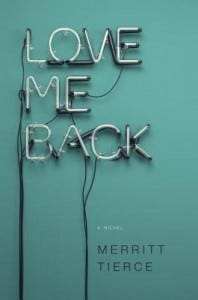
Love Me Back by Merritt Tierce
Books that make us uncomfortable, that make us confront drug abuse, sex, and violence — especially without glamorizing them — are often praised as fearless, unflinching. Those terms, however, are a judgment, a reader acknowledging that there are parts of us we ought to be afraid of, be ashamed of, parts of life we must conceal. But it’s not that there is absence of regret or accountability in Love Me Back. Merritt Tierce’s narrator is anything but naive. This novel is not confessional, it’s not brave, it’s not post-bravery, it’s honest, it’s vulnerable, it’s necessary.
– Benjamin Samuel, co-founder of Recommended Reading and Program Manager at National Book Foundation
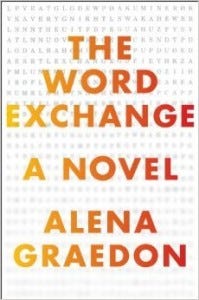
The Word Exchange by Alena Graedon
I can’t believe more people didn’t talk about or love this book. In the swirling concern over what all our little gadgets are doing to our minds, Alena Graedon’s novel about a sci-fi “word flu” sweeping the Earth was about as timely as it gets. This book was practically screaming for people who love reading — and view reading as our salvation — to love it. In the novel, reading is literally our salvation, which means reading The Word Exchange is an obvious meta-experience of the themes Gradeon is trying to convey. The Word Exchange made me feel guilty for my failing memory and over-reliance on search engines and online-info depositories, and the only thing I could do with that guilt was to hope the story I was reading would get better. And it did. Underrated doesn’t begin to cover how great this novel was and how much it should mean to hardcore readers everywhere. Alena Graedon turned the jokes of Super Sad True Love Story into frighteningly cautionary, and serious, science fiction. Oh, and it’s her first book.
– Ryan Britt, author of the forthcoming book Luke Skywalker Can’t Read: A New Geek Manifesto
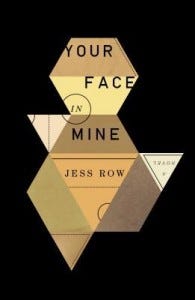
Your Face in Mine by Jess Row
Jess Row’s Your Face in Mine boldly begins with an epigraph from James Baldwin: “And I suggest this: that in order to learn your name, you are going to have to learn mine.” This invocation of Baldwin let’s us know what we are about to encounter some real talk about race, and Row deftly navigates this space with the wild tale of Kelly Thorndike, a widower and public radio executive, who reconnects with a childhood friend who has undergone “racial reassignment” surgery and then signs up to document the story of how a white man from Baltimore comes to make the decision to elect for plastic surgery that will allow him to live as a black man. On a sentence by sentence level, Row is a beautiful writer and deeply engaging storyteller, capturing the voices and complexities of his characters over time, across countries, and across racial divides. On a political level, Row manages to speak frankly and elegantly about race and identity in America at a time where reading about race, across race, couldn’t possibly be more urgent.
– Lisa Lucas, publisher of Guernica
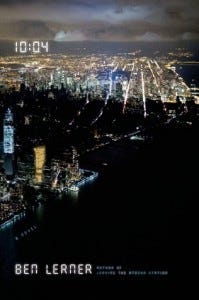
10:04 by Ben Lerner
The events that concern 10:04, which is bookended by Hurricanes Irene and Sandy, are still so vivid that reading this novel gave me the experience of life being simultaneously narrated. It was fitting, for a novel concerned with “multiple futures,” to feel that my present had multiplied. Particularly for New Yorkers, 10:04 is thrillingly sentient. Though nearly two years have passed, I still believe that, if I hurry, I can go see Christian Marclay’s The Clock (the work that gives 10:04 its title) at MoMA before the exhibit closes. Also recognizable from “real life” is Ben Lerner’s story, “The Golden Vanity,” which was published in The New Yorker in 2012 and becomes a central plot point of the novel (the story is reprinted verbatim). Which is all to say, the boundaries between 10:04 and real life are porous, and it’s exciting. But none of that would matter if it weren’t for Lerner’s excellent prose, which is galloping yet precise, his humorous, complex scene-settings (including one of the best extended party scenes I have ever read), his charming obsessions, and poignant world-view.
– Halimah Marcus, editorial director of Electric Literature and editor-in-chief of Recommended Reading
[Read our review of 10:04]
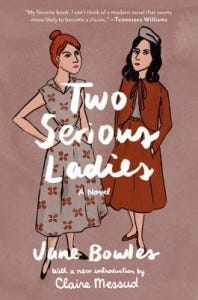
Two Serious Ladies by Jane Bowles
Finally — rightfully — Jane Bowles’s criminally underknown 1943 masterpiece Two Serious Ladies is back in print. Uproarious and mesmerizing on the sentence-by-sentence level, Two Serious Ladies is a rare and marvelously twisted comedy of contradictory characters and unpredictable behavior and speech that, almost inexplicably, manages to convince and delight as it also eludes.
– James Yeh, co-editor and publisher of Gigantic
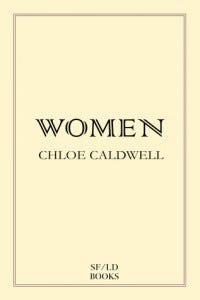
Women by Chloe Caldwell
I am nothing like the characters in Chloe Caldwell’s fiery and honest novella of women in love. These are not my affairs, my mistakes, or my love-drunk disasters. Also, I am not a woman. Yet, Women is my biography. I am in these words. I felt every word, every storm, and every heartbreak in my throat, my bones. This book tore apart my internal organs. I am still recovering. I am hoping I never recover.
– Kenny Coble, bookseller at Elliot Bay Book Co.
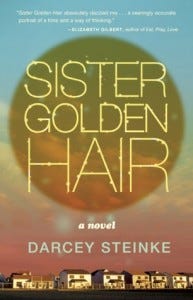
Sister Golden Hair by Darcey Steinke
Darcey Steinke’s work has always been deeply engaged with perception — the perception of religion, the body, and the text as a kind of spiritual reservoir which must capture a sense of authenticity through struggles with form. Set in the 1970’s in a decade of “devolution,” where one could count “ten Nixon signs on the highway as they passed,” in her new novel, Sister Golden Hair, Steinke’s work branches out and engages with the physical presence of a decade and those crises which defined it — feminism and the crisis of self-fulfillment; the “throbbing amazingness of a round full female body;” spiritual “Devolution;” Grandness and An Unconstant God; and the architecture of physical place.
– Ann DeWitt, writer, critic and essayist
[Read our interview with Darcey Steinke]
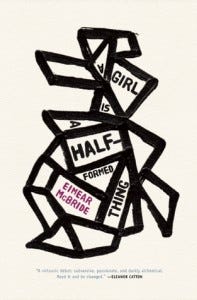
A Girl Is a Half-Formed Thing by Eimear McBride
I’ve heard it said that great novels teach you how to read them, and that is certainly true of McBride’s brilliant debut. A Girl Is a Half-Formed Thing is a difficult book, but a very rewarding one. In an era when so many people look down on fiction that takes any effort, it is heartening to see McBride’s debut not only be published, but get great acclaim and win several awards.
– Lincoln Michel, online editor of Electric Literature and co-editor of Gigantic
NOTE: the following novels received the most votes from the panelists.
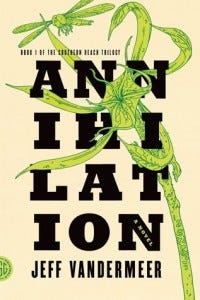
Annihilation by Jeff VanderMeer
Annihilation was the first 2014 book I read that blew me away, so I’m thrilled to see it make the cut here. The novel was book one of the Southern Reach trilogy, all three of which were published in 2014 and then collected as the hardcover omnibus Area X. Here’s what I wrote when I interviewed VanderMeer back in March: “VanderMeer writes in taught, atmospheric prose filled with mysteries and uncanny unease. Fans of speculative fiction — especially the subgenre of weird fiction — and great writing should put this at the top of their to-read list.”
[Read our interview with Jeff VanderMeer and VanderMeer’s own list of favorite 2014 books]
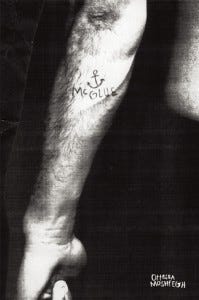
McGlue by Ottessa Moshfegh
Ottessa Moshfegh is a writer that everyone will be talking about soon. She’s been publishing brilliant fiction in The Paris Review and elsewhere, and her novella, McGlue, was chosen by Rivka Galchen for the Fence Modern Prize in Prose. We published an excerpt of the brilliant sea-faring story in Recommended Reading, so go give it a try and then rush out and buy the novella.
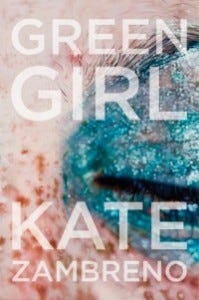
Green Girl by Kate Zambreno
Green Girl is a novel so good that it had to be published twice. Initially published by Emergency Press in 2011, it was republished this year by Harper Perennial to plenty of acclaim. Here’s what our reviewer had to say: “Zambreno touches on a subset of society — a girl, in particular — and makes her universal and individual at the same time. Ruth is all contrasts and costumes and limbs. Zambreno invites us in to her life as a voyeur, but we finish the book with the feeling that she is our own creation.”
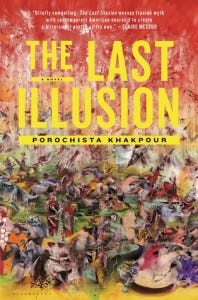
The Last Illusion by Porochista Khakpour
Porochista Khakpour’s sophomore novel has been racking up year-end acclaim (Kirkus, Buzzfeed, NPR, etc.) and for good reason. The Last Illusion is a gorgeously-written fable about a feral Iranian boy raised as a bird who moves to NYC. Part gritty fable, part coming-of-age-story, The Last Illusion is a one of a kind.
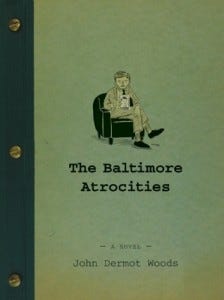
The Baltimore Atrocities by John Dermot Woods
Full disclosure: I collaborate with John Dermot Woods on some projects, so I am very happy to see The Baltimore Atrocities get enough votes for this list. The novel is composed of over 100 vignettes and illustrations woven together with an overall narrative. As such, the book is a form-bending combination of novel, flash fiction collection, and graphic novel.
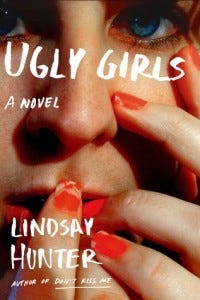
Ugly Girls by Lindsay Hunter
Ugly Girls is another novel making a lot of year-end lists. Here’s what Luke Goebel had to say when he interviewed Lindsay Hunter for our site: “Kind of book everyone will want to read. Mass appeal, all that, killer speed book, craft out of the top of the head, with all the best prose anyone could want, plus the big story, mindblower, like at times I’m reading something written so good I think it’s As I Lay Dying only it’s 2014 or ’15 or ’16 and it’s Ugly Girls and it’s set in this trailer park — other times I’m clearly reading Lindsay Hunter and it’s still set in that trailer park — but it’s like one of those great books you read in school as a kid (though this one isn’t going to be taught in any kids’ schools anytime soon I doubt, not with some of these scenes!) and thought, HOW THE HELL DID THIS WRITER DO THIS?”
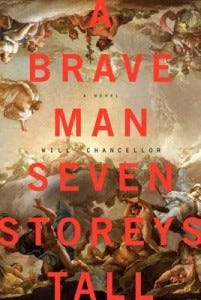
A Brave Man Seven Storeys Tall by Will Chancellor
Chancellor’s debut novel got rave reviews, but flew a little under the radar with readers. Hopefully, it’s inclusion on year-end lists will encourage readers to give this gorgeous novel a try. John Warner of The Chicago Tribune said, “it is a novel that could only be written by one person, at one particular time…the most ‘alive’ book I’ve read this year.” BookPage said, “Chancellor writes in the established tradition of the American absurd, from Pynchon and Gaddis to DeLillo and Foster Wallace. Chancellor may be swinging for the former pair, but lands firmly, and thereby accessibly, in the latter.”
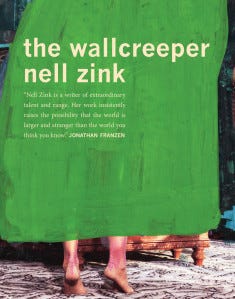
The Wallcreeper by Nell Zink
The Wallcreeper is a book that everyone I know has been raving about. Jeff VanderMeer included it on his list of favorite books, praising it’s “utterly fearless writing.” It was voted one of the top indie books of the year in our survey. And here is what our reviewer had to say: “It’s rare that a debut novel so offbeat, and with such sharp little teeth, is also a page-turner. Rarer still does one like this get past the gatekeepers of the publishing world. It’s exciting that The Wallcreeper did.” We excerpted The Wallcreeper in Recommended Reading.







